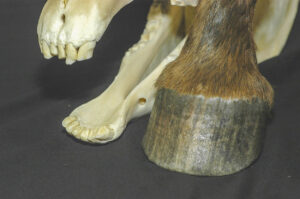Is HIP an Effective Treatment for R. equi?

R. equi, a bacterium that is found worldwide, is the leading cause of pneumonia in foals 1 to 6 months old and has a mortality rate ranging from 1% to 20%. Current antibiotic treatments for infected foals are administered orally and are prolonged and expensive.
There is no approved vaccine against R. equi. Farms with a history of R. equi infections often use ultrasound screening and aggressive antimicrobial treatments to detect and treat infected foals. However, this approach has contributed to the appearance of antimicrobial resistance in R. equi.
Another preventive approach is to administer HIP to foals at birth with a second dose at 4 to 8 weeks. The HIP contains antibodies against R. equi, which are thought to provide protection to the foal. While the exact mechanism of this protection is unknown, Cesar focused on those antibodies directed against virulence-associated protein A (VapA), an important pathogenic factor of R. equi
Create a free account with TheHorse.com to view this content.
TheHorse.com is home to thousands of free articles about horse health care. In order to access some of our exclusive free content, you must be signed into TheHorse.com.
Start your free account today!
Already have an account?
and continue reading.
Related Articles
Stay on top of the most recent Horse Health news with

















